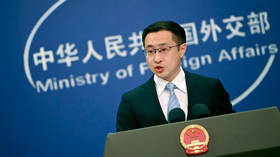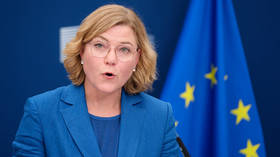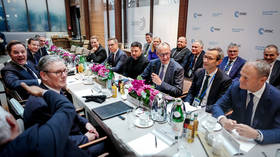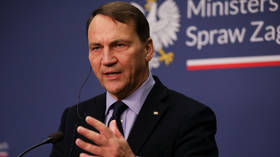American fits over Putin
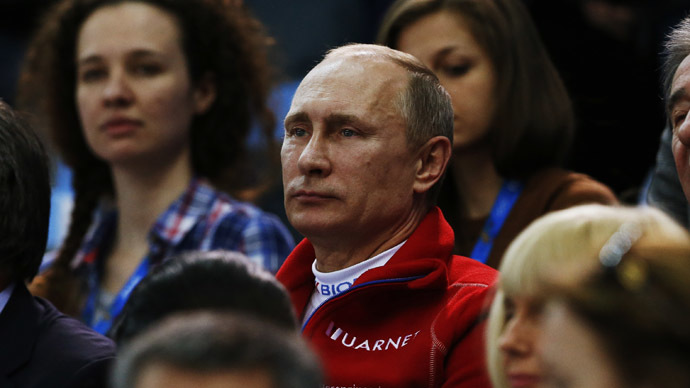
I have for a long time wanted to write about how the Western media, and especially the American media, portrays events happening in Russia and Russian foreign policy to Americans and American expert circles who do not read Russian...
...and unfortunately, there are many Americans considered experts on Russia who neither read nor speak Russian.
Now, as the Sochi Olympics turned the Western media’s attention to Russian affairs one more time, the unlimited bias displayed in the US media has forced me to speak out on this topic again.
It is plainly obvious that the Western and especially the American mass media never aspired to give objective coverage to events unfolding in Russia after the fall of the USSR, and what’s more, never aspired to give an unbiased account of the motives of Russia’s domestic and foreign policy. There is therefore little surprise that they did not change their strategy for the Olympics. It is no coincidence that both before and after the openings of the games, the main themes one could read in the US media were not sports events or athletes, but rather the impending horror of potential terrorist attacks on both Sochi and all of Russia; looming criminal persecutions of Russian LGBT citizens, as well as of tourists and foreign LGBT athletes; the overblown disorganization of the Russian government in constructing the infrastructure for the Games; the endless talk of monstrous corruption and wastefulness of billions of dollars in the construction process; illusory Russian threats to its neighbors born in the minds of Western media and “experts”; and the alleged anti-Western démarches of Russia’s diplomats.
The media stoked unprecedented hysteria to remind Western audiences that the Sochi Olympics were scheduled to take place in a country akin to fascist Germany during the 1936 Olympics held in Berlin. De facto, the Western media prepared the crowds all over the world for the total failure of the Olympics, which was to personify the failure of Putin himself and of Russia. Western journalists brought this task as baggage with them to the Olympics. Now, however, we can state unequivocally that the only losers this entire process produced were the Western journalists themselves, together with the so-called “experts” on Russia, who never stopped forecasting all sorts of apocalyptic events for the Sochi Olympics.

Sadly, even without the Olympics, Russians and citizens of many other countries have tended to distrust Western media in the past few years. But the coverage of the Olympics, their preparation, opening, and conduct, convinced even the most naïve of audiences and those vehemently anti-government in Russia that the Western media hardly deserved any trust. For a very long time as they demonized Putin’s image, the media were not ready to admit that he and his country could create something grandiose; something magnificent; something to captivate Russians and foreigners alike. In their desperate eagerness to deprive Putin of his triumph, they tried to paint dark everything about today’s Russia.
Russian society responded as expected. Russians did not see the media attacks as attacks on Putin, but rather as assails on their country on the part of the Western media, which tried to humiliate and deprive them, their society, and their country of dignity, and to cast doubt on the abilities of the Russian people and state to tackle problems nowadays easily tackled by weaker countries. After all, the Olympics have been held in all sorts of places. We need only remember the games in Sarajevo.
We can have no doubt that, with their anti-Russian, anti-Putin, and anti-Olympic campaign, the Western media actually helped Putin’s triumph, Russia’s triumph, and the success of the Sochi Olympics, as the Russian people at large began to see the American media and American propaganda as the equivalent of the Soviet propaganda of the time of Suslov Agitprop (the head of Communist Party ideology under Brezhnev), which used to portray America as a caricature of itself – a place of lynching of Blacks, of mass unemployment, of homelessness and hunger, which was about to collapse any day under the weight of its unsolved social and economic problems and bring victory to the people united under Marxist-Leninist slogans and led by the US Communist Party. Unfortunately, the process has come full circle. Russian society in its attitude towards US media has turned from utter adoration and unquestioned trust to complete mistrust and rejection.
Even some Western journalists at the Olympics began writing that average Russians have started to feel insulted upon learning how Russia and the Sochi games were portrayed and what the Western commentary was on what happened in the country.
And what has in fact happened in the country is that it has mostly recovered its lost positions economically and politically on the international stage, and become one of the chief actors in world politics. Since the mid-2000s, the Russian leadership, elite, and society have largely overcome the inferiority complex of the 1990s, become more confident and self-sufficient, and turned their concern from who loved or hated their country to who understood them and their policy.
Today, Putin could easily repeat the words that Reagan said at the pinnacle of the Iranian crisis when he ran for president. Reagan said that he didn’t care who loved or hated America, but he would make them respect it. However, unfortunately, there isn’t even an elementary understanding among the Western media and alleged experts in the coverage of both Russia’s political regime and of the domestic and foreign policy followed by the Putin administration. And without the understanding of what is happening in one of the key global players without whose constructive participation it is impossible to solve even one international problem or conflict, it is also futile to expect any sort of good policy towards this country. The myriad misunderstandings in US-Russian relations are not coincidental.
The most surprising fact about the coverage of Vladimir Putin’s activity is not that it is vehemently negatively perceived among American neocons and liberal interventionists who expect the leadership of any country on the planet to bow to America’s dictates. Ideologists and strategists in these political circles hold the political regimes at any spot on the globe to standards set by Washington. Thus any smidgen of independence on the part of foreign regimes is perceived to be an act hostile to democracy and progress, a violation of international norms among the civilized world that are set by this very same clique, while the leaders of those other countries daring to oppose Washington are painted as ignorant of the true interests and aims of their own people, known of course only to the neocons and interventionists in Washington.
It is furthermore surprising to find in the ranks of Putin’s critics such famous conservative commentators who, in their criticisms of Putin’s political course, abandon central conservative tenets, which can be ascribed either to ignorance of the pillars of conservatism or to complete lack of understanding of what is happening in Russia and what Putin’s policies are about. We need only cite here the reaction of a number of conservative figures to the recently published article in The Nation by Stephen Cohen of NYU, who, Bill O’Reilly, apparently due to his senile memory, still cited as a professor at Princeton.
Stephen Cohen in his article only wrote the obvious, namely that US mass media gives a hugely biased report of Russian events, which in itself is a horrible slide in the standards of American journalism, once highly respected because it represented various points of view on all issues of the day and aspired to provide objective information and carefully balanced political analysis.

What was only obvious to any specialist provoked a storm among the so-called journalists and analysts who began to protest vehemently, claiming that they regularly took just and balanced positions on all issues both inside and outside American borders. The famous anchorman O’Reilly, making his negative opinion known, criticized not the content of Cohen’s piece, but the fact that it was published in the left-leaning Nation. This provoked another analyst, Charles Krauthammer, who, just like O’Reilly, has only a very foggy knowledge of what is happening in modern Russia, to state authoritatively that the authors and very agenda of the journal are endless apologists first to the Soviet Union, and now to Russia. Further on, he emphasized that if we can understand why in the past, leftists would feel compelled to defend and apologize to the Soviet Union, as it represented an alternative to Western capitalism, it is mind-boggling why leftists would defend Putin, especially considering they think he believes in nothing, created a personalistic regime, and governs a dictatorship. Krauthammer’s comments were awfully primitive, full of all the bromides found in Western media, spiced with stereotypes from the arsenal of Russian radical liberals that reside on the margins of the political spectrum.
Stephen Cohen traditionally criticizes American policy towards Russia under the presidents Clinton, Bush, and Obama. His criticisms are very similar to those of famous conservative Pat Buchanan who also believes that a series of unilateral actions by US administrations failing to account for Russian interests have created and continue to create tension between the two countries, and that the Russian side was neither the initiator nor the reason for all the numerous conflicts in relations, and that the responsibility for them lies with the American administrations. The question isn’t whether Cohen is on the left and Buchanan on the right. The question is, how objective are they in their analyses?
One can have any opinion of Stephen Cohen, and I myself disagree with him on many issues, such as his evaluation of Gorbachev’s role, but no one can argue that Stephen Cohen is a great scholar and a brilliant expert on Russian and Soviet history, and that when he writes on Russia, despite having his own ideological and political preferences, he attempts to be objective in his analysis and understanding of the processes in both the USSR and now Russia. In the same way, the conservative positions of Buchanan do not cloud his objectivity because, at the end of the day, American readers do not need analysts to proclaim their love or loathing of the object of analysis, but first and foremost they need understanding of what is happening in Russia and what aims and interests the US should pursue in dealing with this very important country.
To demonstrate, we must say that Charles Krauthammer has not the vaguest understanding of Russian realities and simply parrots all the nonsense, stereotypes, and clichés in constant circulation in various media multiplied by the efforts of Russian marginal politicians and journalists of far-left convictions. It is baffling that it is American conservatives who repeat all this, and even more baffling that Krauthammer thinks that if Putin isn’t a staunch communist considering the collapse of the USSR, then he lacks all convictions.
This all comes at the backdrop of what is obvious to many, even some American researchers, among whom the above-mentioned Buchanan, namely, that if there is one politician in the world who isn’t afraid to express his respect for religion, tradition, and traditional and family values, who openly calls for the protection of traditional European mores and speaks against non-traditional values gaining ground unchallenged by the ilk of politically correct European and American politicians, this is Putin.
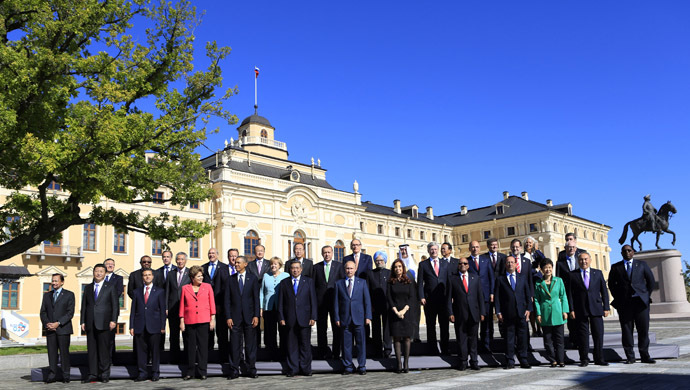
Many years ago, I read with pleasure the book 'Statecraft as Soulcraft' by well-known American intellectual George F. Will, in which he identified himself as a conservative in the Burkian tradition. According to many of his publicly stated convictions, Putin is such a Burkian conservative as well. I recall reading that Krauthammer is a friend of Will’s. If O’Reilly and Krauthammer have failed to read Burke, they know who to ask to define Burkian conservatism for them. Without going into detail of the immortal ideas outlined in Burke’s “Reflections on the Revolution In France,” I will only say that Putin takes great care of the state and protects it from its weaknesses, just as Burke advises a leader should do – treat the state’s frailties as a weakness in one’s own father. Vladimir Putin also understands that society and the state are living organisms, not mechanisms that one can adjust to fit abstract molds dreamed up by dreamers, which is why he is cautious of social and political reform.
Putin cannot afford to forget that, in the past century, half-baked reforms twice led to state collapse in Russia and claimed countless victims and losses. This politician, instead of being offered support in conservative circles, is instead constantly subjected to unjustified critique. Such pathetic types as O’Reilly and his colleague Dennis Miller of Fox News at times even try to mock Putin and Putin’s Russia, knowing not even what they are talking about or what sort of country Putin is leading; they have as limited knowledge of modern Russia as does Senator McCain, who still believes the paper Pravda is the main print outlet of the Russian government.
It is not an accident that Krauthammer still believes Putin has abolished gubernatorial elections at the same time as dozens of new governors are being elected as per new laws in various regions of the Federation. In addition, the likes of O’Reilly and Krauthammer have zero understanding of what is happening in Ukraine or what Russia’s policy there is, but all the same attempt to explain everything that takes place in Kiev as Russia’s misdeeds or to paint the legitimately elected Ukrainian government as Putin’s puppet. They also consider it perfectly normal to pursue a coup to depose of a legitimate president, just as Washington looked the other way when in Egypt the military deposed the legally elected President Morsi, and when, with Obama’s and the Pentagon’s blessing, that same military got rid of American long-term ally and friend Mubarak.
We get the impression that conservative circles in America are undergoing a major crisis. They simply lack understanding of what they support and oppose. At the very least, this is what is happening with them with regard to Putin and modern Russia. They are obviously still living in the Cold War era and cannot escape the stereotypes and clichés around which they comfortably built their worldviews, and through which they saw the Soviet Union, and now Russia. Lacking adequate expertise on the subject, being ignorant of the language, and having no alternative sources of information, they simply recycle the entire media waste and garbage exported in large amounts by Russian radicals and circulated in the media ad nauseam.
There are several reasons for this.
First, it is hard for those politicians and commentators to get used to the thought that after the victory in the Cold War and the de facto liquidation of Russia in the 1990s, Russia all of a sudden became an important factor in world politics, while a new Russian leader – strong, confident, and charismatic – is demanding the deserved spot for his country on the world stage as well as respect for it in international circles, actively acting and, as a rule, being right in his actions. This was so when he proclaimed his opposition, in unison with the Germans and the French, to the US adventures in Iraq.
Today it is no secret for anyone that Libya too was a grave mistake perpetrated by the American administration, while the Russian leader warned that aggression against Gaddafi was not based on any democratic awakening in the country, and that it would lead to the collapse of the state, which eventually happened. Putin staunchly held his position against arbitrary regime change around the world when nobody knew what regimes would sprout to take the place of the old ones, and he still maintains this position with regard to Syria.

Second, the actions of the Russian leadership sit badly with a substantial part of the Washington establishment midwifed in the 1990s and nurtured on ideas of American unilateral global domination. This part of the establishment finds it hard to accept that someone might stand in the way of such domination.
Third, this same part of the establishment also finds it unpalatable to agree with the famous assertion of Lord Acton that power tends to corrupt, and absolute power corrupts absolutely. They cannot see that the saying holds true not just inside a country, but also internationally. This is why frequently, when Russia goes against the US on the international arena, it does so not out of spite, but in the goodwill pursuit to prevent grave mistakes by their partners, of which the past 20 years abound. As my friend Dimitri Simes puts it very succinctly, the US has acquired a “democracy-promotion complex” that is as noxious and dangerous for American foreign policy as the military industrial complex, of which Eisenhower famously warned. New realities need new approaches, which in turn need paradigmatic changes in the worldviews in America and the world; something that not everyone in Washington is prepared to make, be it in analytical, political, or journalistic circles. The absence of such a paradigmatic change is a serious obstacle to objective and sober evaluations of what is happening in the world, and especially in Russia.
In addition, I think there is another psychological factor that I would like to discuss, especially in view of the fact that often, when O’Reilly turns to Krauthammer for comments, he does so invoking Krauthammer’s psychology background. Krauthammer, for all his education, rarely has any idea of the psychology of other people that dictates their actions, but nonetheless I can make some inferences about his own psychology, as well as that of O’Reilly, Senator McCain, Dennis Miller, and a number of others who, at the very mention of Putin’s name, erupt in hysteria. I will take the risk to suggest that this is provoked in no small part by their own psychological troubles.
It looks to me as if they subconsciously adore Putin, understanding that he personifies the type of leader which they desire for their own country, and who reminds them of Ronald Reagan – who America considers to be the personification of the ideal leader, is admired among Republicans and Democrats alike, and considered to be one of America’s strongest presidents after World War II. Putin is the same type of “great communicator” that Reagan was; the type who connects directly with the people and easily explains complex issues of domestic and foreign policy. This is what accounts for his perpetually high rating and the high level of trust that the electorate has in him. It is no accident that Putin is respected by people who have worked with Nixon and Reagan. We can enumerate among them Kissinger, Buchanan, and Rohrabacher.
Vladimir Putin is charismatic, strong, autonomous, confident, decisive, and effective, and has demonstrated all of these qualities with his actions, not his words. These qualities he has showcased in domestic and especially in foreign policy. He exhibited them in his opposition to the Iraq and Libya interventions. He rescued President Obama from a similar fiasco in Syria. Putin further stated his attitude towards the Arab Spring, and has been constructive in his handling of the problem with the Iranian nuclear program. We can continue the list ad infinitum. Thus, venerating Putin and desiring the selfsame leader for America, these people are threatened by the very thought that they are obsessed with him, and try their hardest to remove any suspicion of harboring such feelings; and the more they think about it, the harder they try to rid themselves of the idea, resorting to spewing all sorts of dirt and villainy in the public discourse so no one would accuse them of admiring this politician.
This is a form of sadomasochism, a love-hate situation from which they cannot escape. I cannot otherwise explain the phenomenon of them constantly vilifying and attacking the person who is ideologically closest to them. Without trying to understand their subconscious, there is no way to make sense of their behavior towards Putin.
At the end of the 1990s, William Safire in his New York Times column turned to Madeleine Albright and Evgeny Primakov and said, “Do not be ashamed to say that you are Jews.” I would like to turn to O’Reilly, Krauthammer, Senator McCain, Dennis Miller, and others who try to conceal their fondness for Putin with their foul attacks. I would like to appeal to them paraphrasing Safire: “Gentlemen, do not be afraid to say that you love Putin, that you dream of such a leader for the US.” I am confident that this will remove the heavy psychological split in which you exist. It will ease your neurosis and you will cease to poison the atmosphere of Russian-American relations.
Andranik Migranyan for RT
Andranik Migranyan is the director of the Institute for Democracy and Cooperation in New York.
The statements, views and opinions expressed in this column are solely those of the author and do not necessarily represent those of RT.
The statements, views and opinions expressed in this column are solely those of the author and do not necessarily represent those of RT.



